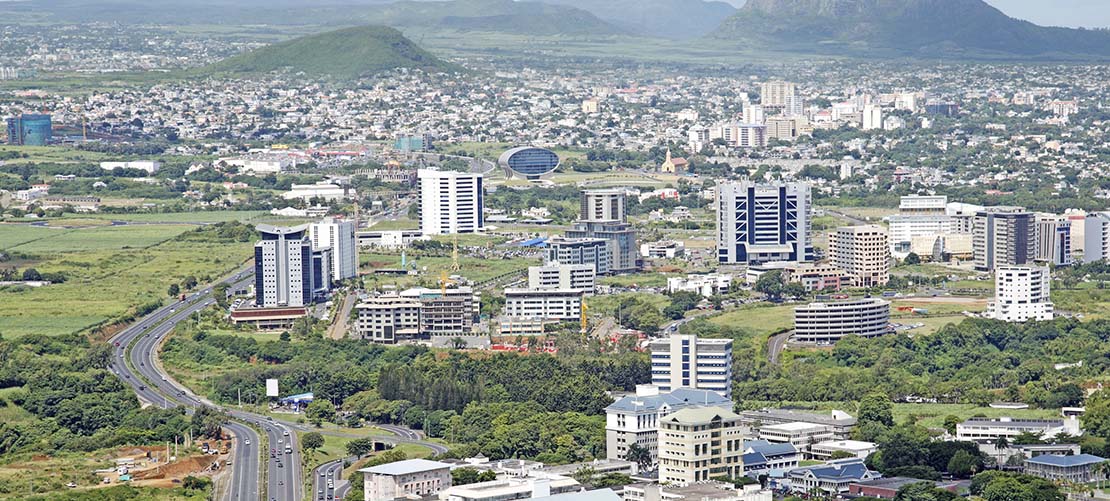
LCIA flies out of Mauritius

The Government of Mauritius and the LCIA have mutually agreed to terminate the Joint Venture Agreement (“JVA”) that established the LCIA-MIAC Arbitration Centre in Mauritius. This move has entirely severed the LCIA’s relationship with the arbitral institution, and has eliminated LCIA-MIAC as we know it, seven years after its creation. However, arrangements have been made to ensure continuity. The LCIA-MIAC will be replaced by a new institution, known simply as “MIAC”. MIAC commenced operations as an arbitration centre, independent of the LCIA, on 27 July 2018.
The reasons for the LCIA’s decision to withdraw from LCIA-MIAC are not yet entirely clear. However, it is relevant to note that, in recent years, the LCIA has also significantly revised its position in relation to the arbitral institutions which it helped to establish in two other jurisdictions: Dubai and India. The DIFC-LCIA Arbitration Centre survives, although its relationship with the LCIA has evolved significantly since it was established in 2008. LCIA India was closed in 2015, six years after it opened. All disputes arising under LCIA India arbitration clauses will be resolved by arbitration under the LCIA Rules.
LCIA-MIAC was a joint venture between the Government of Mauritius and the LCIA. It was funded, at least insofar as its cash requirements were concerned, by the Government of Mauritius. It benefited substantially from support from the LCIA in relation to its casework requirements, since the LCIA Court performed the same role under the LCIA-MIAC Arbitration Rules as it did under the LCIA Rules. The LCIA also supported LCIA-MIAC’s secretariat by providing IT and accountancy support, and training for staff.
LCIA-MIAC started with a clear but challenging mandate. It was established to be a specialist international arbitration centre, catering principally for international disputes (i.e. those with parties from outside of Mauritius) and Mauritian disputes in which the parties included Mauritian companies with international shareholders. The number of cases referred to LCIA-MIAC for arbitration is not known but it is believed to be low. It may be that this reflects the difficulty of starting a truly international centre from scratch, without first building up a significant domestic (or partly domestic) caseload.
It is six years since LCIA-MIAC became operational. Whilst it is no longer a new centre, this is nevertheless a fairly short period for an arbitral institution to establish itself, particularly in the international sphere.
The withdrawal of the LCIA may cause some concern about the permanence of the institution, which survives as MIAC. Time will tell, but there is good reason not to doubt the longevity of the institution, even if its structure and organisation must now change. Given that the essential funding for the institution comes from the Government of Mauritius, rather than the LCIA, this should mean that the underlying solidity of MIAC is not undermined by the LCIA’s withdrawal. The Attorney General of Mauritius indicated in remarks quoted in the press release announcing the withdrawal of the LCIA that the Government will continue to support MIAC for the foreseeable future.
Transitional arrangements have been announced in summary, which will cater for contracts providing for LCIA-MIAC arbitration, whether made before or after the inception of MIAC.
One feature of the transitional arrangements stands out. Arbitration agreements entered into before 31 August 2018 that provide for arbitration under the rules of LCIA-MIAC will be referred to London to be administered by the LCIA. This is of obvious and particular interest to parties to LCIA-MIAC arbitration agreements. The LCIA-MIAC was always described as an African arbitral institution but, as a result of the mutual termination of the JVA, disputes arising at any time out of LCIA-MIAC arbitration agreements made before 31 August 2018 will now be referred to London.
Although this solution seems clear enough, it is nevertheless conceivable that disputes may arise between parties as to whether it is appropriate for the LCIA to appoint arbitrators and administer arbitrations arising under agreements providing for LCIA-MIAC arbitration. To avoid such disputes, the parties to existing contracts containing LCIA-MIAC arbitration clauses may wish to consider entering into an agreement to vary the choice of institution to provide for MIAC, or to confirm expressly that the arbitration will be under the LCIA Rules. There is no way to know how many contracts have been made containing LCIA-MIAC clauses but it seems likely that there are a significant number.
Another notable impact of the transitional provisions is that, where an arbitration clause provides for arbitration under the LCIA-MIAC rules but does not specify a seat, the presumption under those rules that the seat will be Mauritius will be replaced by a presumption under the LCIA rules of a London seat (rule 16.2).
The precise structure of the new institution is not yet known. It is understood, however, that MIAC will have an advisory board, chaired by Prof. Emmanuel Gaillard, in place to ensure that it operates in accordance with established international standards. The new institution will also have an independent secretariat with co-registrars. MIAC has also promulgated new arbitration rules, based largely on the UNCITRAL Rules.
Questions have been asked about whether LCIA-MIAC could ever achieve its ambition to be a leading arbitral institution in an African venue. Some have queried whether progress has been adversely affected by the existence of the MARC Arbitration Centre, which has operated in Mauritius for some time and has recently been active in promoting its enhanced set-up as it strengthens its procedures and governance. Indeed, the early success of institutions such as KIAC in Rwanda may suggest that it is vital for a nascent institution to secure most of the local arbitration market.
Whilst the departure of the LCIA will undoubtedly be seen by some as a blow to Mauritius, perhaps in time this moment will be seen as the point when Mauritius stood alone with the belief to build its arbitration offering on its merits. Certainly, Mauritius retains a unique and progressive set of laws and court system for arbitration matters, and still enjoys a reputation as the least corrupt and most efficient jurisdiction in Africa. Keep watching this space...
Duncan Bagshaw is a barrister in Stephenson Harwood’s international arbitration team, and was the Registrar of the LCIA-MIAC Arbitration Centre from 2012 to 2015.


